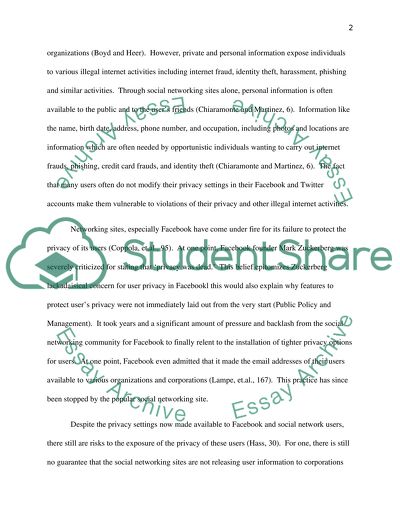Cite this document
(“Personal and Private Information Exposures and Opportunities Term Paper”, n.d.)
Personal and Private Information Exposures and Opportunities Term Paper. Retrieved from https://studentshare.org/information-technology/1455777-personal-and-private-information-exposures-and
Personal and Private Information Exposures and Opportunities Term Paper. Retrieved from https://studentshare.org/information-technology/1455777-personal-and-private-information-exposures-and
(Personal and Private Information Exposures and Opportunities Term Paper)
Personal and Private Information Exposures and Opportunities Term Paper. https://studentshare.org/information-technology/1455777-personal-and-private-information-exposures-and.
Personal and Private Information Exposures and Opportunities Term Paper. https://studentshare.org/information-technology/1455777-personal-and-private-information-exposures-and.
“Personal and Private Information Exposures and Opportunities Term Paper”, n.d. https://studentshare.org/information-technology/1455777-personal-and-private-information-exposures-and.


